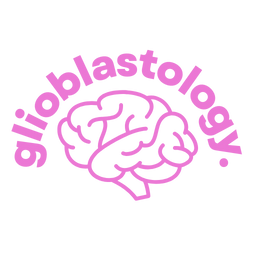We had been brought up to notice, to take “life as it is” and turn it on the spindle of compassionate action to make it more like “life as it should be.” This is resistance (Shem, 2002, p. 934).
When short term goals of care were achieved, I was discharged by my inpatient physical therapist, with a referral to continue therapy in an outpatient setting. During a month-long hospital stay, I graduated from a wheelchair to a walker; in fact, my first mode of transportation following brain surgery was a wheelchair equipped with a plastic tray to hold my weak left arm to prevent my hand from falling limp onto the spinning spokes of the wheels while clinicians transported me from my room to the cafeteria or the therapy gym.
Slowly but steadily I practiced shuffle steps between the parallel bars in the gym, using my hands for balance and added support. Then with a bulky knee brace to prevent my leg from hyperextending, risking damage to my knee, I scooted along with a walker. Finally, I was discharged with a cane to build up my mobility over time but instructed to use a walker around the house and use my wheelchair outside of the home.

Assistive devices are often associated with a decline in function and independence, but for me, walking only with the use of a cane was an achievement. Now, I cast my cane aside when playing outdoors with our boys, but summed up recently by Whitney when I jogged several paces, “well that was awkward.” Not to mention the last time I attempted to walk our energetic two year old, 55lb dog, he brought me to the ground. “Are you OK?!” A nearby neighbor shouted. “Yes, I usually have a cane…” I began, but I let the words fizzle out after realizing the explanation for a fit-looking mid-30s year old taken down by a happy dog required more than just “I usually have a cane.” I waved off the concerned neighbor and struggled to my feet.
See, there is life “as it is” and life “as it should be,” observes Samuel Shem, the pseudonym for doctor and author Stephen Bergman, whose 1978 cult classic House of God, describing the brutality of medical residency, continues to be a must-read for medical students. The book, following a class of young doctors beginning their art and practice of medicine, exposes the reader to the horrors of the healthcare system, but Bergman does so with dark humor. In a 2002 article, “Fiction as Resistance,” from which the epigraph for this post is taken, Bergman shares more about his commitment to fiction as a guide to understanding.
As it is, or as it was in the summer of 2016, I celebrated when I was able to transfer to the toilet without assistance, and how it should be, the recovery of my agency and independence to use the toilet on my own, and also, bathe, dress, and tie my shoes became my act of resistance to the locked brain trauma unit that was my home during this time of partial recovery. The content of my journals during this time serves as the foundation of this blog, but more than share my stories with others, my writing is (was) also my guide to understanding. Fact can be stranger than fiction, and Shem (Bergman) and I have at least one thing in common: our tools for examining the world are pen and paper.
“Other than my brain cancer,” I joke, “I’m in pretty good shape.”
As it is, I confront my health every day. Will I have a terrible headache? Do I have the familiar seizure onset symptoms, or “aura”? Does my left foot tremor when I set it down to take a step, signaling that fatigue will be problem? Does my head float, seemingly detached from my body?
I wrote a blog post recently addressing the “you might as well” sentiment: you have brain cancer, have some ice cream, you might as well. In that post I resisted the idea that serious illness affords an anything goes attitude. Paradoxically, perhaps, I suggest that the opposite is true: serious illness demands more rigor and discipline.
I rewrite my to-do list weekly, and I am happy to report, that list continues to fill with conferences, speaking, invited guest blog posts, and advocacy events. There is so much I have yet to accomplish: the book that is sitting incomplete on my laptop’s desktop, the three draft academic philosophy papers that need a little more attention before they are ready for submission, and the reformatting of my CV to seek more opportunities to tell my story.
My boys deserve the most able bodied dad they can get before his body falters and fails. Whitney deserves the maintenance of my health for as long as I can sustain before her spouse and care partner roles continue to bleed together.
What if the most punk rock thing I can do is get a good night’s sleep? What if rebellion in the face of illness is to decrease or eliminate those extra glasses of wine? What if my greatest act of resistance to terrible disease is prioritizing health?
Health, as resistance.
What if that’s how I take life as it is and make it more life as it should be? What compassionate actions might you take? What gap between “is” and “should be” will you close? What is your greatest act of resistance?
Shem, S. (2002). Fiction as resistance. Annals of Internal Medicine, 137(11), 934-937.

Leave a comment